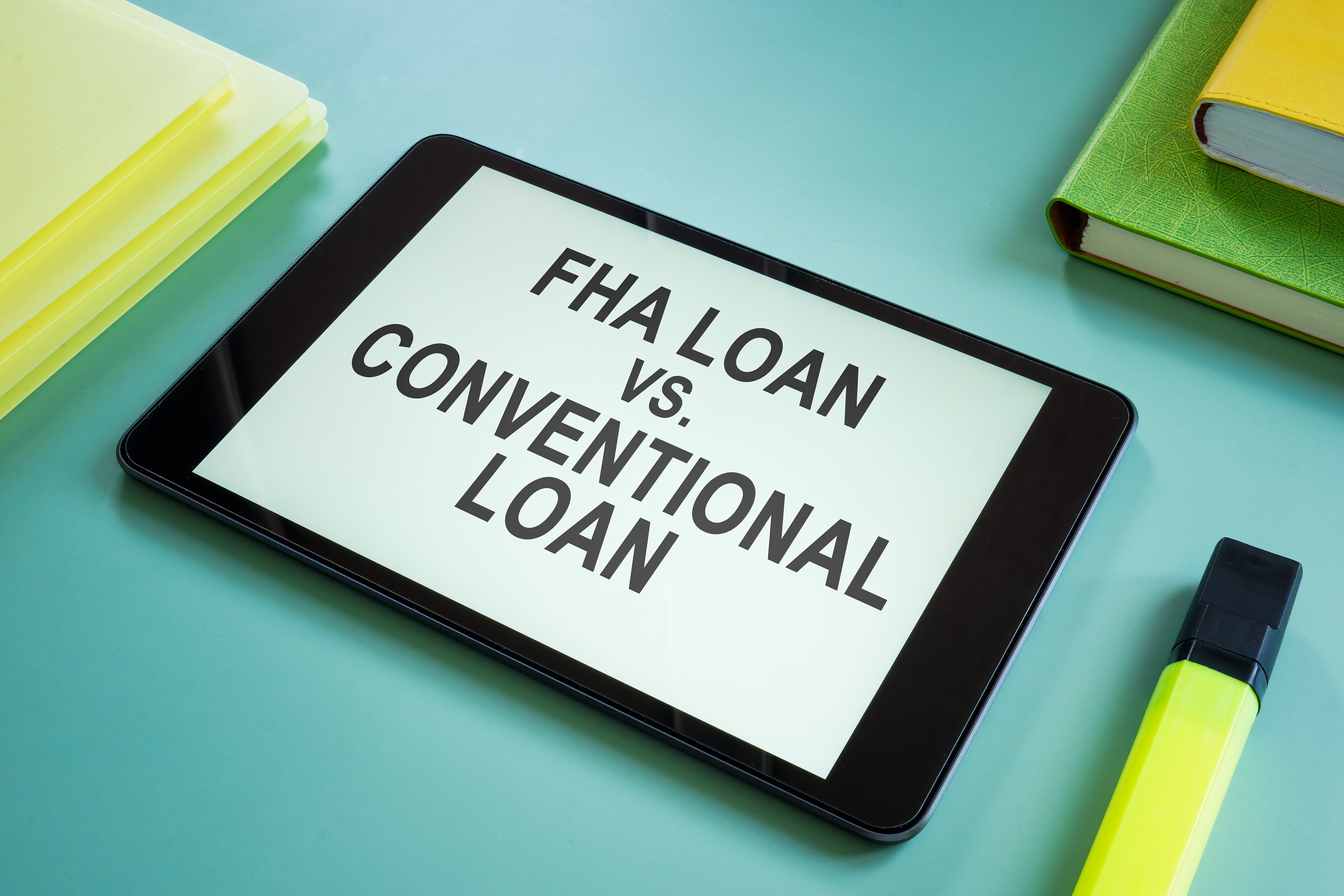What Is the Difference Between FHA Loans and Conventional Loans?

Conventional loans come from private lenders, like credit unions and banks, and are not backed by the government. Federal Housing Administration (FHA) loans are backed and insured by the federal government.
People with lower debt-to-income ratios and better credit scores will likely qualify for conventional loans, while households with lower credit scores may need to find an FHA loan.
Since conventional loans tend to be reserved for people who are deemed lower risk, their rates are generally lower than rates for FHA loans.
What Are the Differences Between Conventional Loans and FHA Loans?
Slightly higher rates aren’t the only thing that makes FHA loans unique. There are several features that make them better for people with low income or poor credit. For example, borrowers can get approval for an FHA loan even if they can only afford a small down payment on a new home.
The minimum down payment for conventional loans is technically three percent, but it may be higher for some borrowers. If your credit score is good enough to qualify for a conventional loan but isn’t perfect, you might be required to make a larger down payment.
Putting down more than three percent if you can afford it is not a bad thing. Your down payment reduces your loan principal. The lower your principal, the less interest you’ll pay over the life of your loan.
Are There Limits for Conventional Loans?
Yes – except in the highest cost-of-living cities, conventional loan limits are $647,200 as of 2022. If you need to borrow more than that amount, you will need to qualify for a jumbo loan.
Can You Get an FHA Loan from Your Bank or Credit Union?
Yes – just because the loan is insured by the government doesn’t mean you can’t get it from your primary financial institution. An FHA loan is kind of like insurance for the lender. It lets them lend money to borrowers who would otherwise be denied due to risk.
For example, most first-time homebuyers get FHA loans since they tend to have lower credit scores. First-time homebuyers may also be unable to afford the large down payment required for a conventional loan.
Can You Refinance an FHA Loan into a Conventional Loan?
Yes – many homeowners eventually refinance their original FHA loan into a conventional loan. If you’ve owned your home for five or ten years and your credit score has improved, you might now meet the qualifications for a conventional loan.
There are a couple important benefits to refinancing an FHA loan into a conventional loan. It may allow you to eliminate your mortgage insurance (PMI). Conventional mortgages generally don’t need mortgage insurance once the loan-to-value ratio drops below 80 percent (meaning you’ve built at least 20 percent equity).
The rule varies somewhat depending on when you got your loan. If you obtained an FHA loan before June 3, 2013, you are eligible for mortgage insurance cancellation after five years of on-time payments and 22 percent equity. If you purchased your home after June 2, 2013, you only need 20 percent equity, but you also need to refinance your FHA loan into a conventional loan without mortgage insurance.
Is Mortgage Insurance Really That Bad?
PMI is an extra cost, even when you have a low rate. Mortgage insurance premiums (MIP) can be anywhere from 0.5 percent to 5 percent of your total mortgage value each year. If you took out a $200,000 mortgage, you’d be paying an extra $1,000 to $10,000 per year. The exact premium you’d need to pay would depend on the size of the loan, how much the claim would pay out if you were to default and your credit score.
If you’re a first-time homebuyer, you should pay close attention to your equity so you can refinance into a conventional loan as soon as possible and get out from under PMI.
What’s the Best Type of Mortgage for New Orleans Homebuyers?
There’s no one clear answer that applies to every homebuyer. If you’re a first-time homebuyer with a thin credit history or a less-than-perfect credit score, and you can’t afford a large down payment, an FHA loan may be your best option.
On the other hand, if you’re buying your second or third home, can afford a significant down payment and have a good credit score, a conventional loan will likely make more sense.
Every situation is different. You should strongly consider speaking with an experienced OnPath FCU mortgage expert to learn about your options. Call us at 800.749.6193 for more information.